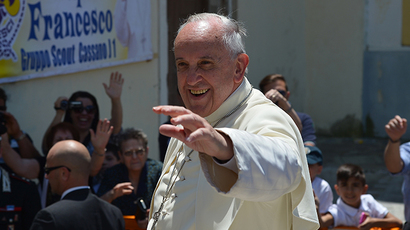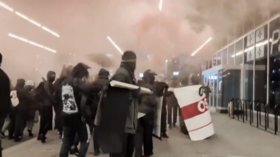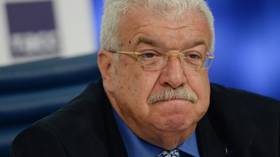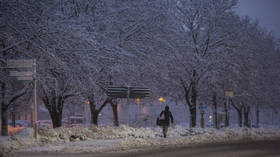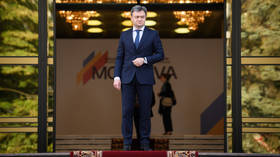No more Godfathers? Sicilian bishop bans Mafiosi from church Sacraments
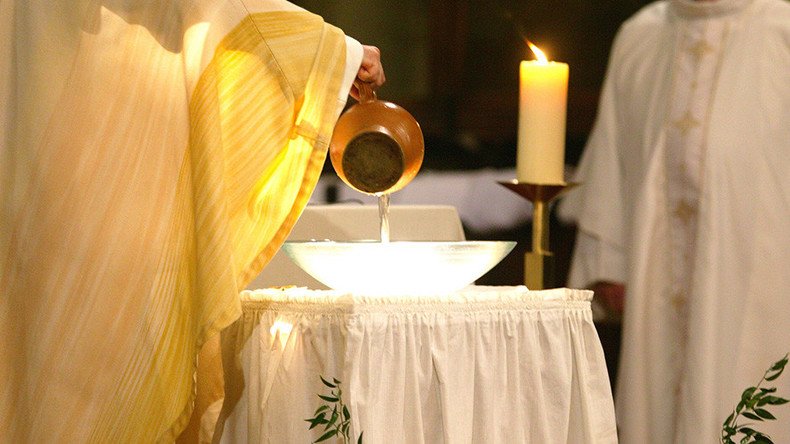
Sicilian archbishops in the birthplace of the Cosa Nostra, have ended a two-century-old tradition by banning mafia members from acting as godparents for baptisms or being sponsors to Catholic confirmation.
Ever since the mafia's inception in Sicily in the 19 century, members of the notorious crime syndicate and later the La Stidda criminal clan have been immune from the condemnation of local clergy.
But on Thursday things changed, when Michele Pennisi, archbishop of Monreale, outside of Palermo, stopped just short of excommunicating mafia members. Instead, Pennisi issued a decree banning members of criminal gangs to act as godparents or be admitted to confirmation, the last of three initiation rites into the Catholic faith.
At a Catholic confirmation, a person who has previously been baptized is initiated into the faith by the laying on of hands of a bishop or priest. At the ritual, an individual sponsor lays one hand on someone's shoulder and speaks a confirmation name. The clergy responds by anointing oil on an individual’s forehead.
“Those who are guilty of shameful crimes cannot be admitted to the post of godparents for baptism and confirmation,” Pennisi told Corriere della Sera on Friday.
“We have to be clear,” said Pennisi. “A Christian godfather should be a guarantee of raising a child in the faith. How can he be that, if he lives in opposition to the Gospel, in violence and total obedience to the god of money?”
Pennisi explained that his decision to issue such an unprecedented decree stemmed from a church scandal in Padua last December. In that incident, a son of a notorious Sicilian mafia boss, Salvatore ‘Totò’ Riina, was allowed to be the godfather for his nephew’s baptism, only one week after receiving the Sacrament of confirmation himself.
Catholic Sacraments, the bishop said, provided religious legitimacy to criminal members which they don’t deserve.
“You can’t ignore the fact that serving as a baptismal godfather or a confirmation sponsor allows them to reacquire a religious consensus and honorability that a mafia leader doesn’t deserve,” he said.
While the ban issued by Pennisi only applies to his archdiocese, the archbishop hopes that his example will set a precedent for other jurisdictions to follow.
“The north must also reflect,” he told Corriere della Sera, “given that the mafia, indeed the mafias, aren’t just a Sicilian phenomenon but an Italian, even European mentality.”
In July 2014, Pope Francis denounced organized crime as an anathema when he visited Calabria in southern Italy.
“Those who in their lives follow this path of evil, as Mafiosi do, are not in communion with God. They are excommunicated,” Pope Francis said at the time.
“This evil must be fought against, it must be pushed aside. We must say no to it,” Francis added, promising that the Vatican would apply all measures to combat such activity.
